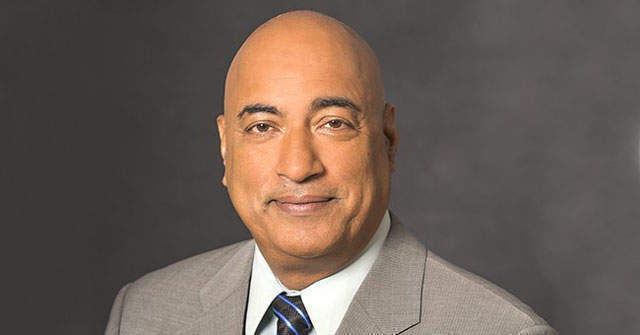
Meet Randhir Thakur, the semiconductor veteran at the head of Intel’s new foundry biz

Earlier this week, Intel CEO Pat Gelsinger announced plans for the Santa Clara, California based firm’s “major evolution”, with the setting up of a foundry to manufacture chips for other big players.
And, Gelsinger chose the firm’s chief supply chain officer Randhir Thakur to head this new standalone business, dubbed Intel Foundry Services (IFS). His goal? To make IFS the market leader by 2025, by when Gelsinger estimates the foundry market to be worth $100 billion.
But who is Thakur? What does he bring to the Intel table? Read on to find out.
Let’s start at the beginning.
Thakur graduated with a bachelor’s degree in electronics and telecommunications engineering from the National Institute of Technology, Kurukshetra, in Haryana, after which he moved to Canada to pursue a master’s degree in electrical engineering from the University of Saskatchewan, according to his LinkedIn profile. Later he completed his PhD in electrical engineering from the University of Oklahoma in the United States.
Career growth
Thakur, as per Intel, began his career in the year 2000. He spent the first five years in Applied Materials as part of leadership roles in semiconductor product groups.
He then moved to Sandisk, where he led the flash memory storage company’s design, technology development, wafer manufacturing, assembly and test operations as its executive vice president of technology and worldwide operations.
In 2008, Thakur returned to Applied Materials to build solar technologies such as large size solar photovoltaic modules. Not long after that he was given the responsibility of the Silicon Systems group, the chip manufacturing business of Applied Materials, where he led a team of more than 6,000 people and handled profit and loss for its operations worth $6 billion.
In a span of five years, Thakur was able to drive his team to release more than a hundred new products and deliver
increased market share for the group, according to his LinkedIn profile.
Move to Intel
After spending four years as a board member at semiconductor giant Marvell Semiconductors, Intel hired Thakur as the corporate vice president for its global supply chain management. In 2020, he was promoted to the position of chief supply chain officer.
He oversaw the product lifecycle of Intel’s chips right from R&D to manufacturing. He was also responsible for managing the firm’s corporate sourcing, procurement, supply chain operations and delivery of the goods to customers.
He managed its annual expenditure with the external supplier and partner ecosystems, and handled more than 4,000 employees in diverse roles such as engineers, analysts, solution architects and product supply chain architects, a responsibility he is expected to continue as president of the foundry.
His roles at Intel included that of chief technology officer of the transistor and capacitor business, corporate vice president, and group vice president. He currently has more than 300 patents in the semiconductor and solar industries to his name.
New role at IFS
Intel’s new CEO Gelsinger has wasted no time in taking forward his strategy for integrated device manufacturing 2 (IDM 2.0). The company plans to pump in $20 billion in two microchip manufacturing plants in the US, along with external foundries to drive the company’s growth.
With its foundry business, Intel plans to become a major provider of chip manufacturing for companies across the Europe and the Americas.
It is to be noted that companies such as Apple, Amazon Web Services, Microsoft and Google Cloud already design their own chips, which poses a challenge to Intel’s traditional processor business.
Gelsinger said in a recent webcast that IFS could lead to the company collaborating with competitors such as Qualcomm. Intel also said it will increasingly cooperate with its competitors in the market, something the CEO terms as a “co-opetition” story.
This co-opetiton strategy will mostly be led by Thakur, who will provide external customers with Intel’s IP for x86 cores, graphics, artificial intelligence and interconnect.
The Intel foundry unit will also support customers with ARM-based designs, and will have access to Intel’s chip packaging technologies.
Thakur will play a key role in tapping into this market for Intel as it plans to return to its “unquestioned leadership” for CPUs in the next 3-4 years, according to Gelsinger.

